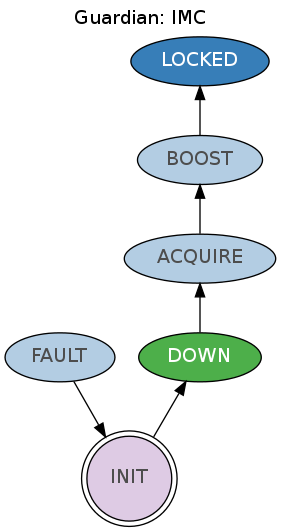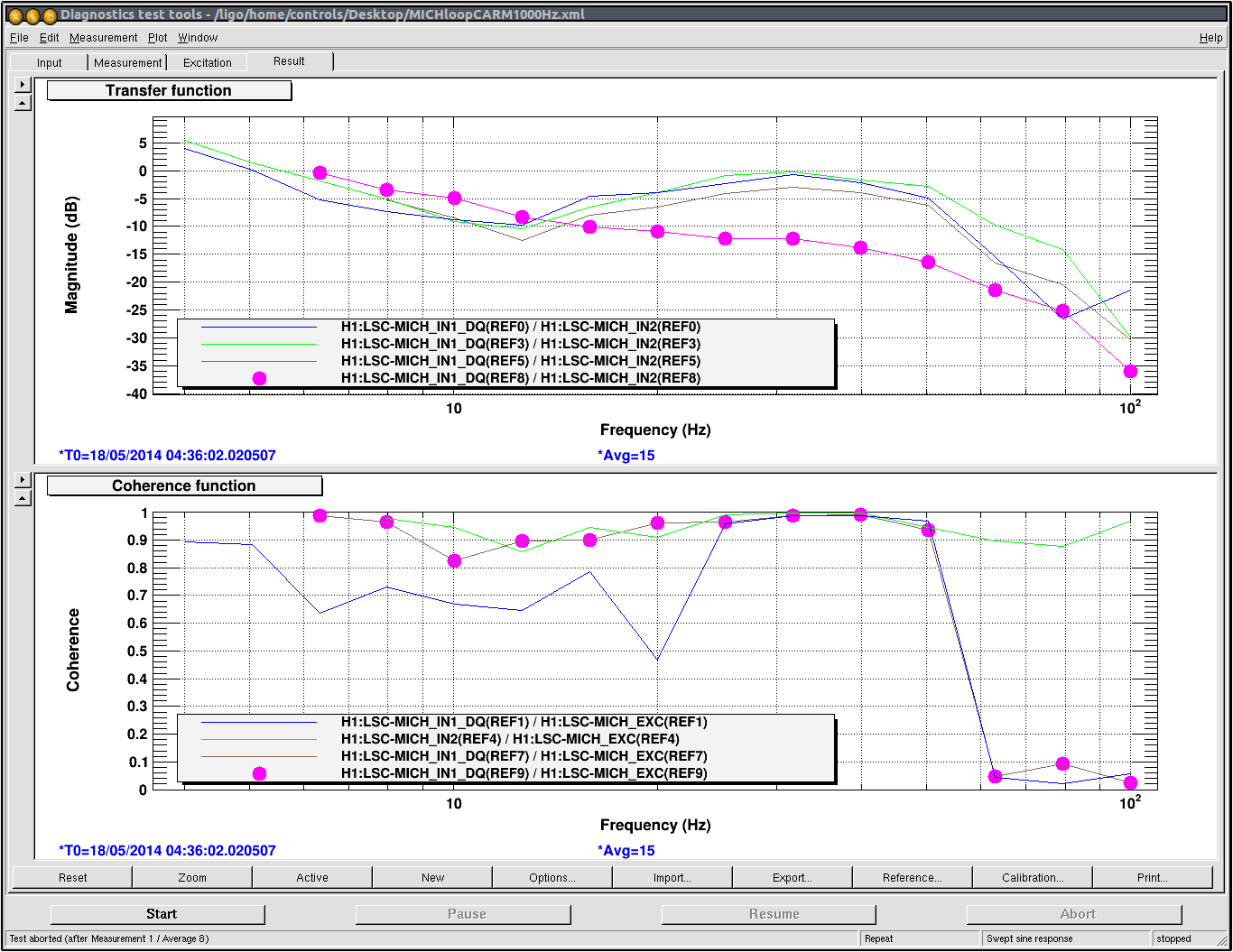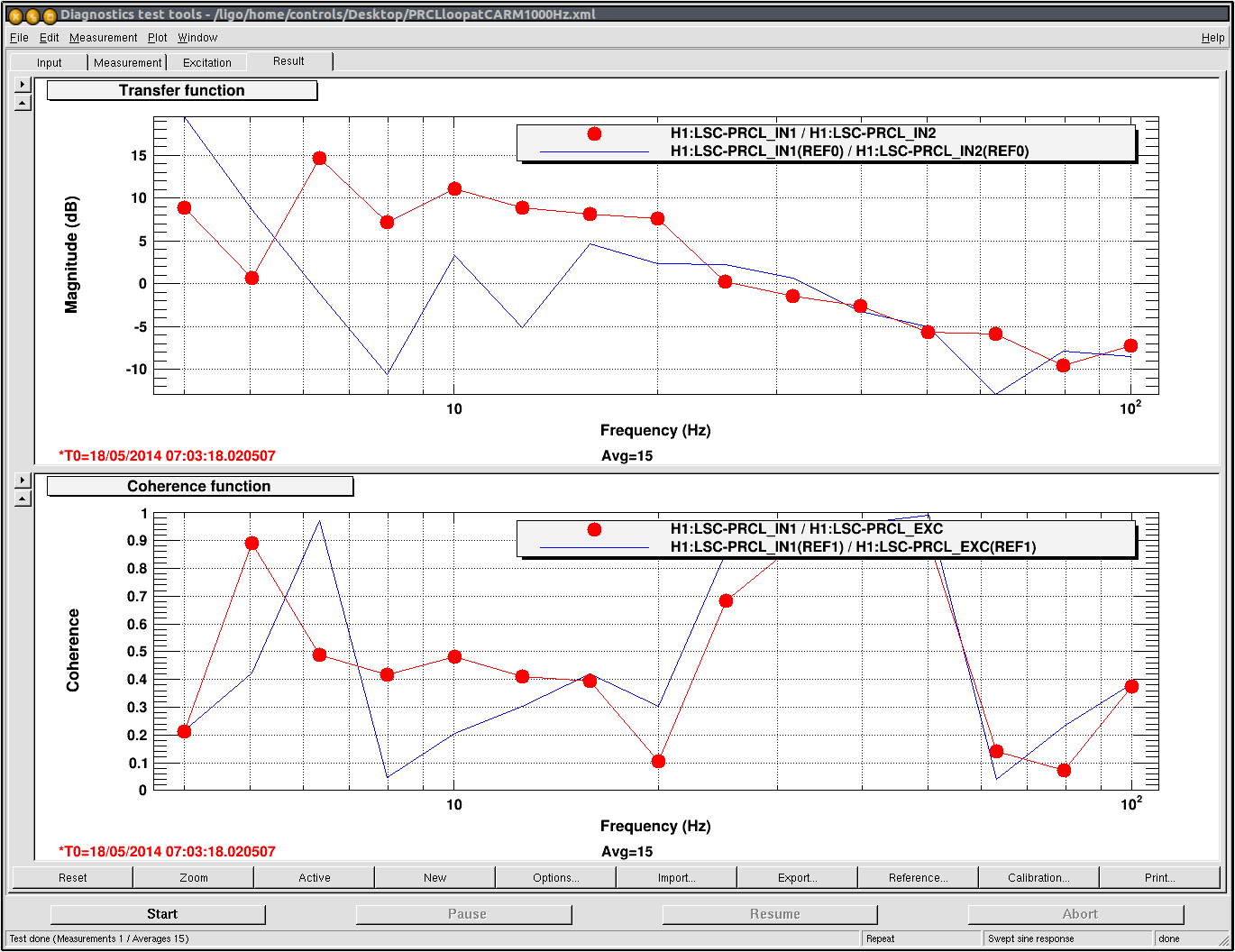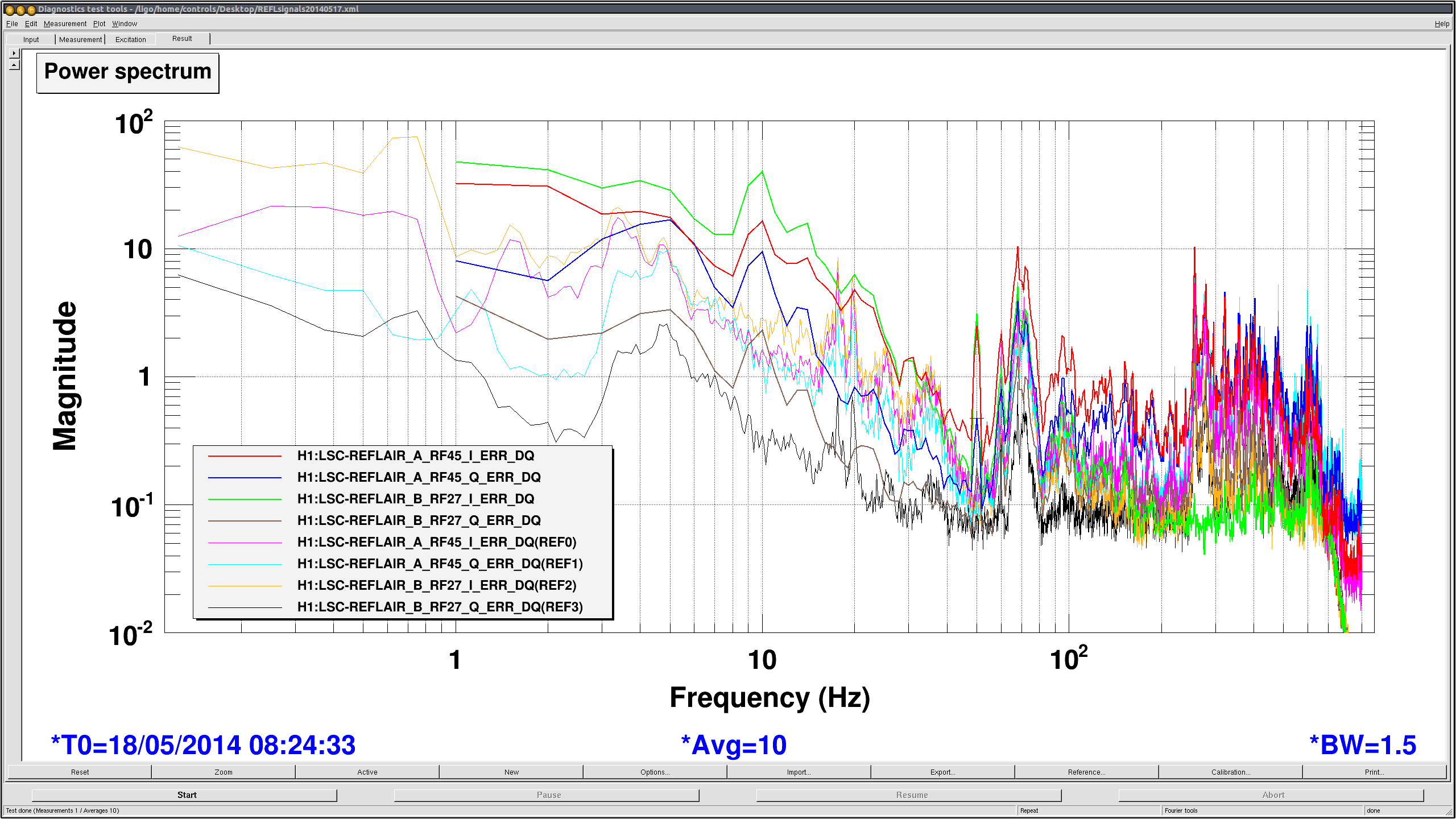CO2X: - Turned on laser at 10:00 AM PT, mysteriously turned off around 3:24 PM PT. Still investigating causes, but we opened up the table and didn't see any problems. We're leaving this on overnight tonight. CO2Y: - Calibrate the on table power meter. - We're not leaving the laser on tonight, but we are leaving the chiller and the power supply on. HWS HAM4: - Aligned part of the X side on the in air table - Retrieved spare in-vac temperature sensor for install by SUS RHs: - We wanted to commission the ITMX ring heater today without bothering the integration team. Since the time constant of the ring heaters is on the order of many hours, quick impulses of very small powers (1-4 Watts for 1 or 2 seconds) we figured that it wouldn't be a problem. We left the ITMY ring heater alone because it is actively being used to lock the PRMI so we focused solely on ITMX. Complication: We saw some problems with the ITMX RH. First off, the power we request gets translated into a current request which should match pretty closely to the current measured. When we request 3.5 Watts, we expect to get .29 Amps and 12.0 Volts but we get .14 Amps and 6.00 Volts with an output wattage of .8 Watts. Not good. Then we noticed that turning on the upper segment of the RH affected the read back on the lower segment. This is really strange since we expect that the two segments are electronically isolated from each other. Test: We tested the ITMX ring heater continuity out to the floor and got 50.2 Ohms for both the upper and lower segments so that is what we expect. Then to the ring heater on the floor from the RH driver chassis, we saw that it was driving the correct amount when we used a breakout board to measure the voltage across the ring heaters. The ring heater driver also provides the monitoring tools for the RHs as well such as voltage_mon and current_mon and this could be wired wrong in the Beckhoff chassis. So we carefully measured the continuity of the connection between the feed through and the EtherCAT modules to make sure that they match our drawings and this is where we found the wiring mistake that had us confused. Basically, there was a wiring switcharoo between the readouts of the upper and lower segments on ITMX but in a unique way: the positive read back terminal was connected to the upper and the negative read back terminal was connected to the lower. That would explain why the two segments were coupled when we know that they shouldn't be. The good news is that ITMY seems to be working just fine and weird up correctly, also, this mixup happened only on the read back side of ITMX RH, which means we don't think that it's actually driving the ring heaters in some unexpected way. At the first available opportunity, we want to fix this wiring and test the RH again. Before the next vent, we hope to do some serious testing with the ITM ring heaters, namely turning them on and off in 30 minute intervals for 24 hours to see their response.















